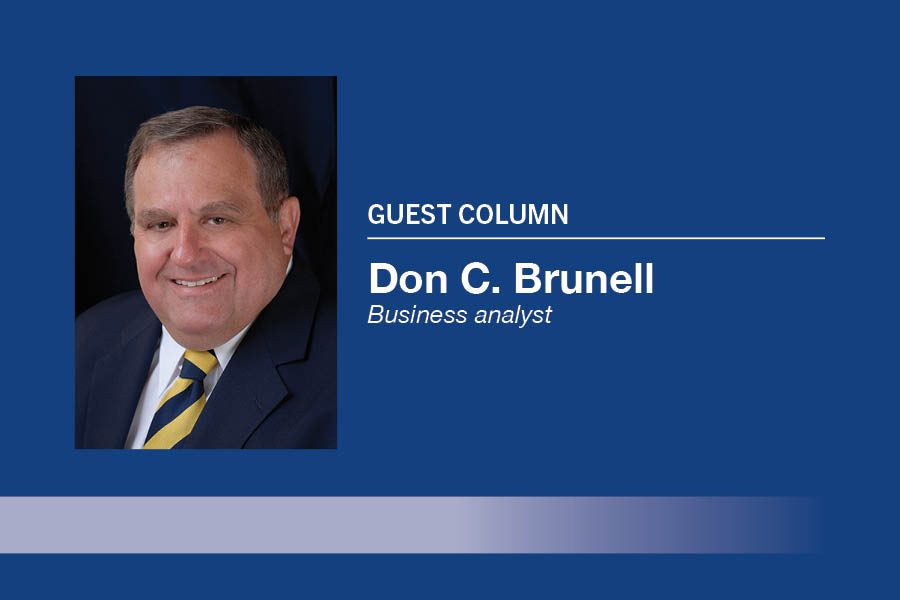
Home » Small businesses are often the forgotten constituency
Small businesses are often the forgotten constituency

February 13, 2025
During the 1992 presidential campaign, then-candidate Bill Clinton famously intoned, “I feel your pain,” reassuring voters he understood what they were going through. Since then, similar statements of empathy have become a staple for politicians. However, it does not always ring true with every constituent.
Take small business owners, for example.
Most elected officials have no idea what it is like to risk everything you have or to struggle to meet payroll for your employees and their families as waves of new regulations, higher taxes and added permit fees threaten to drown you and your business.
One politician who got that firsthand experience was former U.S. Senator and presidential candidate George McGovern, a Democrat.
In a 1992 Wall Street Journal column, “A Politician’s Dream is a Businessman’s Nightmare,” McGovern described his experience running a Connecticut hotel and conference center. He went bankrupt, a failure he attributed in large part to local, state and federal regulations that were passed with good intentions, but no understanding of how they burdened small business owners.
Deeply affected by his failure, McGovern became an advocate for regulatory and lawsuit reform, saying, “I … wish that during the years I was in public office, I had had this firsthand experience about the difficulties businesspeople face every day.”
While politicians often tout their support for small business, they are the least understood and most overlooked political constituency.
These folks put their life savings on the line 12 to 16 hours a day, scrambling to make ends meet. They do not have time to campaign for political candidates or lobby elected officials, yet too often they feel the brunt of tax and fee increases and cumbersome regulations.
Family-owned businesses are America’s economic backbone. According to Family Enterprise USA (FEUSA) 2024 data, America’s 32 million family businesses are our largest private employer accounting for 83.3 million jobs. They contribute $7.7 trillion annually to U.S. gross domestic product.
In Washington, a third of businesses are small (fewer than 500 employees) and family owned.
FEUSA found more than 30% of all family-owned businesses survive in the second generation but only 12 will still be viable in the third.
There are many examples of Washington family-owned businesses which are thriving in the third generation. One is Pearson Packaging Systems of Spokane which was started in 1955.
Founder Lefty Pearson initially worked for a brewery and handmade six-pack carrying containers. He invented an automated “six-pack case erector” in his garage.
Today, Pearson builds machines that form, pack, seal and palletize boxes for companies such as Dell, Procter & Gamble and Coca-Cola. The company has distributed more than 20,000 machines worldwide and has 225 employees with annual revenue that exceeds $100 million.
After Pearson died in 1971, his wife, Alma, and daughter, Pam Senske, stepped in to lead the company through the transition. Senske became an extraordinarily successful CEO before turning over the company’s reins to her son, Michael, in 2003.
Pam died earlier this year. Michael told the Spokesman Review his mother valued the company’s employees and implemented a comprehensive benefits package to ensure work-life balance. She earned their loyalty, respect and trust.
Employee dedication and valued work are particularly essential to family-owned business success. Their reputation for customer satisfaction, quality work, timely service, innovation and friendliness spreads by word-of-mouth. Returning buyers are key to any business.
With family-owned businesses so important to our economy, why are they taken for granted? Largely because they are too busy working to stay competitive and raising their families.
It would help if, to run for office, politicians had to first sweat making a payroll, struggle to deal with complex and costly maze of government regulations, and deal with the uncertainty of business cycles and global competition.
It would help if they truly did feel their pain.
Don C. Brunell is a business analyst, writer, and columnist. He is a former president of the Association of Washington Business, the state’s oldest and largest business organization, and lives in Vancouver. Contact thebrunells@msn.com.
Entrepreneur Opinion
KEYWORDS February 2025
Related Articles
Related Products




